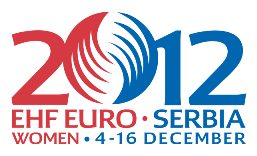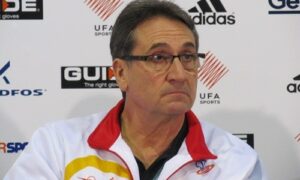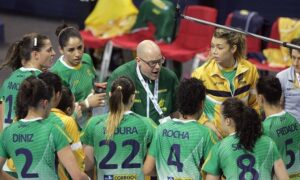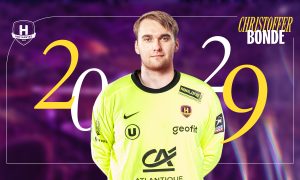Handball was one of the biggest success stories of the London Olympics, where and even renowned US writer Bill Simmons fell in love with the game (http://www.grantland.com/story/_/id/8213663/handball-handball-handball) (ok, he mostly fell in love with the Swedish women’s team…). Amateur clubs have since sprung up all over the UK, but the true test of the global reach of the sport will be its ability to sustain interest in its annual competitions. With the European Women’s Championship about to throw off in Serbia, I have provided below some pointers to help you sound like an expert as you gather your friends/co-workers to watch the free broadcast of the Championship onhttp://www.ehftv.com/.
Main storyline (non-handball-related): When Serbia hosted the European Men’s Championship in January, violence during the semi-final between the hosts and Croatia (and in the days surrounding the game) marred what was otherwise an excellent and well-organised tournament. Let’s hope that the ugly side of the Balkans’ recent history does not find its way into the women’s championship.
Main storyline (handball-related): Most of the key players from the winning Olympic team are back for Norway, but can they retain the European Championship for a fifth consecutive time without star playmaker Gro Hammerseng?
Favourites: Norway
Biggest rival: France
Outside bet for the title: Romania
Expectations for the host: As Serbia is in the “easier half of the draw”, getting out of the first group stage is a must. Beyond that, the team is capable of a top-six finish.
Serbia’s best player: Andrea Lekić (playmaker)
Seven players to watch:
* Klara Woltering (goalkeeper, Germany)
* Nina Kamto Njitam (pivot, France)
* Ann Grete Nørgaard (left wing, Denmark)
* Cristina Neagu (left back, Romania)
* Anita Görbicz (playmaker, Hungary)
* Nerea Pena (right back, Spain)
* Linn-Kristin Riegelhuth Koren (right wing, Norway)
Five unmissable group games:
* Serbia – Norway (4 December), the hosts open the tournament against the four-time defending champions
* Romania – Russia (4 December), two of the most talented teams meet in what is becoming a modern rivalry
* Russia – Montenegro (5 December), no rest for Russia as they take on the new-look Olympic silver medallists
* Romania – Montenegro (7 December), the potential decider for the top spot in Group D
* Hungary – Spain (7 December), with their “group of death” rivals severely weakened by injuries, Hungary and Spain should be playing for the top spot in Group C
Every team in a sentence (in my predicted order of finish):
* Norway – their constant winning is getting a little boring, but I just can’t see past the current Olympic, World and European champions
* Spain – the return of Nerea Pena from injury and the nationalisation of Alexandrina Barbosa give the Olympic bronze medallists both the quality and depth to compete with Norway
* France – there are some question marks about goalkeeping and consistency, but there is no doubting the quality of the outfield players
* Romania – the return of Cristina Neagu from a long-term injury should give this talented team a boost
* Montenegro – with the retirement of Bojana Popović and Maja Savić the team will take a step back, but should remain competitive at the highest levels
* Serbia – An opportunity for a relatively unknown set of players to use home court advantage and make a name for themselves
* Hungary – domestic clubs are thriving, and now it’s time for the national team to regain its status as a contender, two years before co-hosting the European Championship
* Russia – the core of this team remains young and on a learning curve, but at some point Russian fans will begin to lose their patience waiting for a return to the glory days
* Denmark – after Denmark’s embarrassing performance in London, a young and experimental squad has been assembled with the future in mind
* Ukraine – in impressive form this year, and could be a surprise package
* Germany – could have contended if it weren’t for a slew of injuries to key players
* Sweden – would you trust a team built around Isabelle Gulldén (of Usain Bolt’s bedroom fame/infamy)?
* Croatia – just too many key players missing for them to be competitive
* Macedonia – has the potential to finish anywhere between second and bottom in the weak Group B
* Czech Republic – getting out of Group A would be a real achievement
* Iceland – the last-minute replacement for original hosts Holland has little real chance in a group with Montenegro, Romania and Russia
TEXT: Ben Shafran















